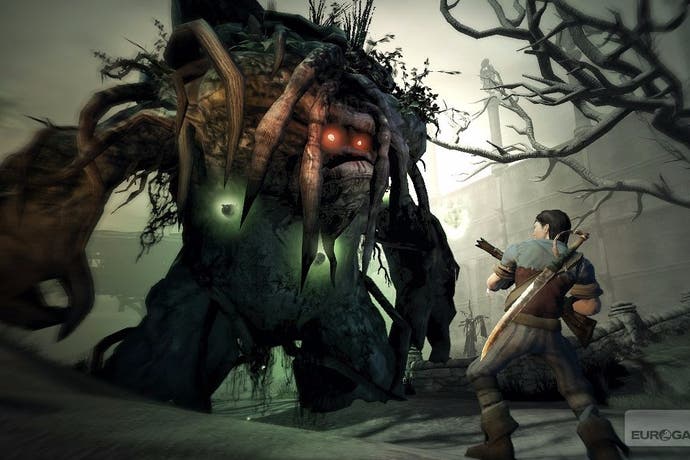A celebration of Lionhead's finest games
One of Albion's greatest legends.
The best games create stories as well as telling them, and when you ask people about a Lionhead game there's usually a good one. A friend told me how, when playing Black & White, he'd found his inscrutable cow-god familiar taking a dump in the village's food supply. He went to punish it, mis-clicked, and instead petted the beast. From then on the cow went out of its way to poo on food, and no amount of beatings would dissuade it. My friend persevered with his save for days before, finally, admitting defeat and starting over - left only with the memory of handing out monotonous beatings to a bewildered, unhappy, constantly-befouled creature.
Lionhead's games were never all sunshine. The news that Microsoft is gearing up to close the studio is desperately sad, especially so for those affected but also for the millions of gamers who - over two decades - have come to expect something a little different from the Guildford-based developer. It's not so much that the studio always delivered, with several of its most-hyped games eventually canned, but along the way it has made ambitious games, original games, maybe the odd duffer and a handful of solid-gold classics.
Lionhead was founded in 1996 by Steve Jackson, Peter Molyneux, Tim Rance and Mark Webley. Molyneux would become the focal point for much of the company's history, and his ability to promote gave Black & White - the studio's first title, released in 2001 - an enormous media profile that the finished product just about survived.
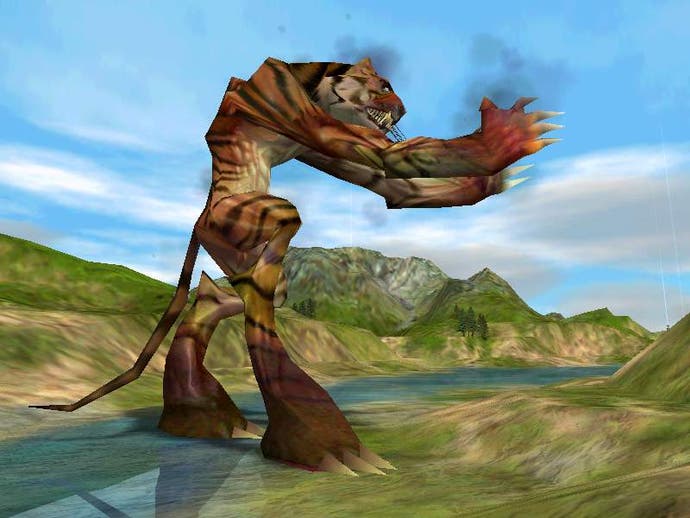
Black & White was a game that was slightly over-promised in some respects, but best not to draw too many parallels between this and Molyneux's more recent travails. The reason his best work came at Bullfrog and Lionhead is that in these two environments Molyneux was surrounded by extremely talented programmers, and so regardless of what he said the games were ultimately good.
Such is the case with Black & White, which in many important respects doesn't resemble the game Lionhead said it was making - the creature AI in particular, which was apparently sophisticated beyond imagining at the backend, came out feeling rather crude in action. It wasn't that the creature didn't 'learn' as intended, but that the process could easily be 'gamed' by spamming whatever you wanted them to copy.
It is, perhaps, a signature quality of Lionhead that this oddly compromised creature made Black & White's take on the god genre special. I always chose the ape, was a good master and taught it well, and then watching it act out around the little villagers and do odd jobs was weirdly mesmerising. The simple act of petting it was fun, and when the game removed (then neutered!) it in the latter stages the whole experience suffered terribly. Black & White's creatures are an amazing idea in the god genre, because by default players are abstracted from these worlds - but an ornery ape in your charge gives that presence a new dimension.
A creature-focused expansion for Black & White followed shortly afterwards, but it would be three years until Lionhead's next new title. It was working on several projects that were eventually cancelled, which sadly would become a theme, and the first we know of is BC - a prehistoric action-survival-adventure where you control tribes. There's little more to say about a game that never made it but, for the curious, a good amount of footage was unearthed last year:
BC was being developed by Intrepid Computer Entertainment, which was one of several satellite studios Lionhead had established relationships with. Another of these was Big Blue Box Studios (founded by Dene and Simon Carter), and it was working on a new kind of role-playing game: Project Ego.
This isn't the place for the making of the game that became Fable, but the 2004 Xbox exclusive would become Lionhead's flagship series and - in a more profound way - give the studio its own identity. I liked Black & White, and have a soft spot for many 'Molyneux' games, but the Fables are why Lionhead's closure feels like such a bitter pill.
These are games where you feel personality shining through every touch of the world, from gnarled old trees to foul-mouthed fishwives. Albion is a cultural fantasy that is uniquely British in its thickly laid foundation of irreverence. In places, it's almost a send-up, but Fable embraces saucy postcard humour as much as it does Serious Fantasy Lore and, in this, creates a world with texture, somewhere you can actually imagine characters having lives.
And as the name suggests, there's also a childish quality here. There may be scary villains and dastardly deeds along the way, but Fable's roots are in fairytale and the hero's journey, and in the idea of change.
To briefly digress: over the years Peter Molyneux said many things that came back to haunt him and Lionhead, but the most infamous was the suggestion that players could plant acorns and grow trees in Fable. The feature was removed before release, and much criticism followed, but it never especially mattered to me. The tree represents this core idea, which is that you could see things changing - your character, other NPCs, even parts of the world - over the course of the game.
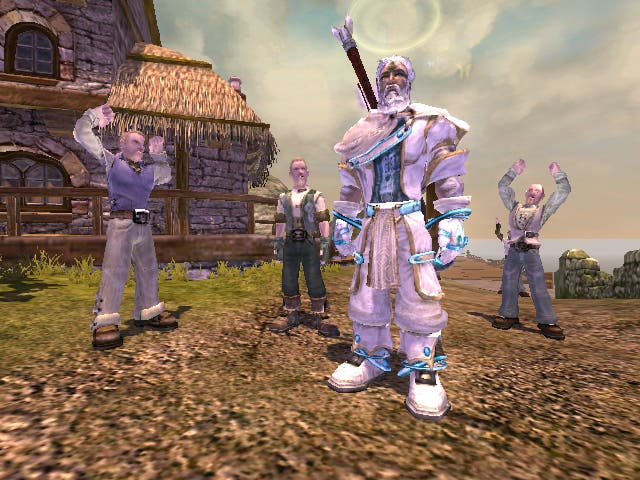
The thing is that Fable succeeded in achieving this effect. It was amazing watching your young boy grow into a mighty hero and, by smartly weaving the big choices you have to make through the supporting cast, it felt like the choices were a big deal too. My overwhelming sense at the end of Fable was of having been on a fantastic journey, something that hit those Peter Pan notes and made my character feel like my character. To focus on the side-issue of an acorn in this context was, forgive me, to miss the wood for the trees.
2005's Black & White 2 felt like a game that fixed many of the original game's mistakes but, in an effort to create a more palatable and easily-understood experience, added a whole load of new ones. Black & White 2 is nevertheless a good strategy game, because it emphasises the creatures and removes clunkiness - the villagers are a little more capable, teaching the creature is easier, and the missions come thick and fast. But that mission structure itself, much more pronounced than in the original, trammelled a little of what made it special in the first place. Even now I think there's a great game in there, but it didn't do it for me, or many others.
In November 2005 Lionhead released what would be their last PC-focused title, and by some measure their most original and farsighted (of those that made it to market, at least). This was The Movies, a game about making movies - or machinima if you insist - using characters that players create and can voice.
But The Movies hobbled itself with a lack of focus. It's about making movies, but it's also a game about making movies in the sense that you run the studio and try to make hits. It never needed this 'game' layer, which copies much from the Sims, and it serves only as a block to what you really want to be doing. On top of this, much of the movie editor's functionality was unexplained. But players who persevered found a flexible and powerful creative tool alongside an eventually huge selection of props, and with the character creator could have any 'star' they wanted. On top of this a website (now sadly defunct) existed for sharing films, while a mod scene quickly grew around building bespoke scenes and props.
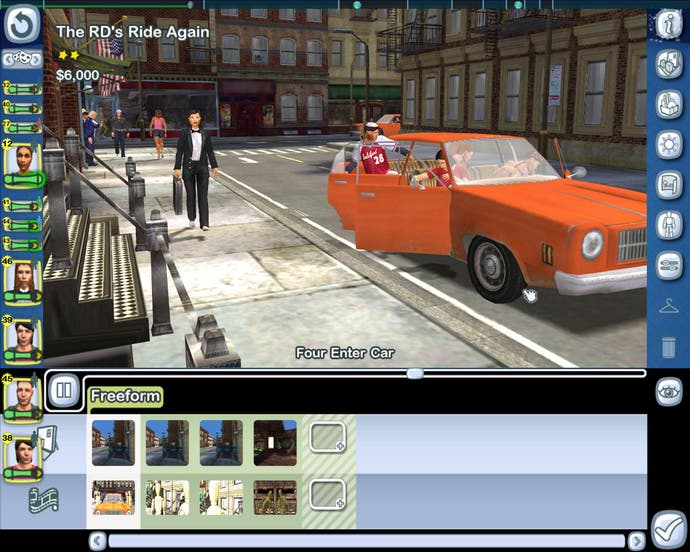
Around this time, priorities were shifting. Lionhead was in some financial trouble in 2004, which is when it took its first outside investment. In 2006, the studio was acquired by Microsoft.
This gave Lionhead the resources to make Fable 2 for Xbox 360, which is my favourite game the studio ever made. I could tell you about how I own every single piece of property in Albion. Or how I mastered every craft the game had to offer, destroyed every last one of those filthy-mouthed gargoyles, rinsed the Crucible, sired heirs in every town, spread syphilis among most of them, and then - a bearded giant of a man, riven with scars - drank one silly potion and woke up as the female version of Desperate Dan. But instead, let's talk about farting.
One of Fable 2's features is that you can 'perform' in various ways for NPCs, and some of these actions have a minor skill component. So you can break wind uproariously, which will impress some and offend others, but if you hold the button too long your character follows through with an immense squelch.
When I first played Fable 2 it was alongside a friend who wanted to do nothing but this. The animations and sound effects are so spot-on he'd just crease himself; it was the first thing to do whenever he spotted a new NPC, and even now we'll occasionally reminisce about this one aspect of Fable 2: the hero who just ran around towns crapping himself in front of strangers. This is an incidental part of the game but, for some, it's at the bottom of why we love it.
Fable 3 didn't have Fable 2's luxury of four years' development, and though still a decent game there were ways in which you sensed it. The world looked and sounded like Fable but there wasn't the same impulse to cosy up in it, perhaps thanks to the structural idea for the short campaign - where you make promises in the first half, and decide whether to keep them in the second.
I don't want to be too nasty about Fable 3, but it is an especially interesting game in the sense that it misunderstood what was great about Fable 2. The combat is simplified to almost inane levels, a misshapen heir to Fable 2's great principle of making death less of a problem. This is then exacerbated by grindy missions. And the emphasis on your Big Choices ends up sucking a lot of the fun out of just being around the population. From a company that makes games full of feeling, this one seemed a little cold.
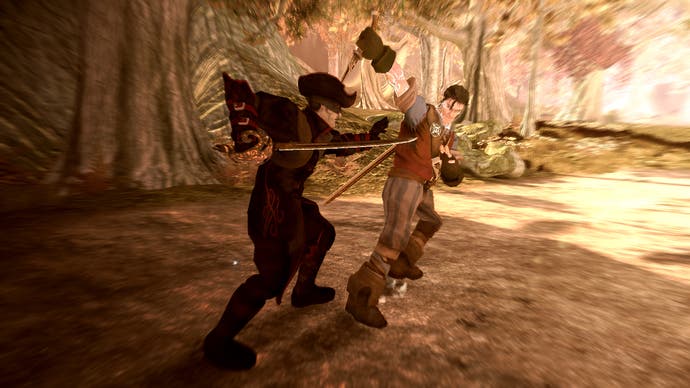
While we're not here to talk about Microsoft and what the acquisition meant for Lionhead, or indeed Fable 3, the publisher is nevertheless responsible for the studio's late output. Fable: The Journey was made because the wider Xbox business needed another Kinect game. Fable Legends' troubled development and confused business model, on the other hand, seem of a piece with Xbox One's own difficult birth.
Lionhead's best game may be a sequel, but it never felt like the type of developer that suited the role of Fable factory. Molyneux got Lionhead into financial troubles in the past and, one would wager, there is some untold story about just what the investment in its famous Kinect experiment Milo & Kate was, and whether it ended because Microsoft lost faith in the hardware, the software, or the studio.
But what we know of Milo & Kate does say something. Milo is one manifestation of a game Molyneux has wanted to make for decades, built around the concept of a boy growing up. There is no telling how much of the incredible E3 demo was smoke-and-mirrors, but I have colleagues who subsequently 'played' it at the studio and attest to it being a functional experience that - with hiccups - seemed reasonably responsive.
From the outside, it seems Lionhead went really big on Milo, but Microsoft didn't see it as a viable commercial product. In September 2010, the news broke that work on Milo had been halted and, despite the odd tidbit, that has been that.
Who knows whether Microsoft was right or wrong, but it seems that many had invested much in Milo - not least Molyneux, who would see Fable: The Journey to completion before leaving in early 2012. And Microsoft also deserves its due: however things ended, without Redmond's involvement, there may never have been anything after Black & White 2.
Lionhead was a studio that tried for moon shots, and sometimes didn't make them. But in this it supported many great artists, some of whom have gone on to establish themselves independently. For a while, Lionhead had the reputation of a 'nearly' studio - one that always threatened to make a great game without ever doing so. Well that, at least, can be forgotten about. If Lionhead is to go, it's a sad day for British development, and we owe it at least the dignity of a headstone at 1 Occam Court, Guildford. "Here was Lionhead, 1996-2016. A dreamer that followed through."
